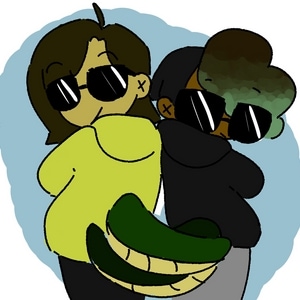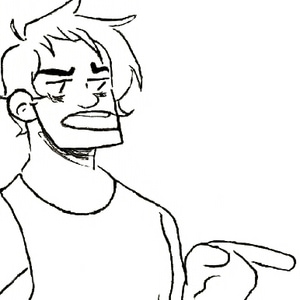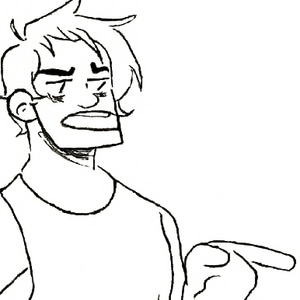It was 3 o’clock in the morning when I realized that the pounding was on the door and not in my head.
“Ruben! Ruben Bernbaum let me in,” shouted the voice from the other side of the door.
I rolled off the cot in my office and waded my way through empty liquor bottles and ashtrays to get to the door.
“Alright already! I’m coming. Stop knocking so loud,” I moaned.
I struggled to unlatch the bolt. It was dark, I was drunk and the noise from all that knocking was like gunshots ringing in my ears. As soon as I was able to turn the lock a big, fat hand swung the door wide open and blinding hallway light came streaming into my darkened room. I could only make out a silhouette, but I could tell from the short, round shape and husky voice it was my landlord Essie.
“Ooh wee darlin’! You smell like a still on fire in a sweatshop. Cut the light on,” she said as she fanned her nose with a handkerchief.
I plopped back down on the cot, closed my eyes and cradled my aching head.
“I can’t turn on the light,” I said. ‘I didn’t pay the bill.”
I could hear the clanking of empty bottles as Essie made her way to the window. She raised the shade to let in the outside light from the street lamps and blinking nightclub marquee. Then she opened the window to let in some fresh air.
“They must have cut your phone off too,” she said shaking her head disapprovingly as she surveyed the room. “I’ve been trying to call you for an hour.”
Essie owned the building. It was the most impressive structure in Savannah’s bustling black business district on West Broad Street and Essie was Savannah’s most impressive business women. She packed 300 pounds on her dark brown, five-foot frame and looked like a swollen Josephine Baker. She wore her hair in slick shiny fingerwaves, chain smoked French cigarettes from a long cigarette holder and wore a full length fur coat during the winter, summer, spring and fall. Essie ran a jazz club on the bottom floor of her building, rented out offices on the second floor and lived in the penthouse on the third and fourth floors. She was a shrewd business person who had built a back alley juke joint into a thriving entertainment enterprise. Madame Essie’s House of Jazz had been the South East Coast’s entertainment capital for almost a decade because Essie had gone to work as a maid for an old money broad named Lady Gladys during prohibition in order to get access to large liquor shipments without being questioned. Lady Gladys, RJ Reynolds, JP Morgan, the Rockefellers the Pulitzers and all the East Coast robber barons were among Essie’s best customers.
But Essie had a heart of gold. She knew I had fallen on hard times. I lost my law practice because I spent too much time listening to jazz bands on the black side of the tracks. That sort of interaction just didn’t sit right in white society circles in the segregated South. After my parents cut me off I tried unsuccessfully to get a detective job with the Savannah Police Department. They rejected me four times once because I was drunk, three times because I was a terrible shot. I was pretty much disgraced in Savannah’s white society circles. But Essie let me rent a space for the Ruben Bernbaum Detective Agency above her nightclub. As long as I paid the rent she didn’t say anything about me sleeping there.
“Did my rent check bounced or something?,” I asked. “What could you possibly want at this hour?”
Essie tossed me my hat.
“No Rubie darlin’,” she said. “Something bad happened at old Lady Gladys’ place. Get dressed. You got you the case of a lifetime.”












Comments (2)
See all